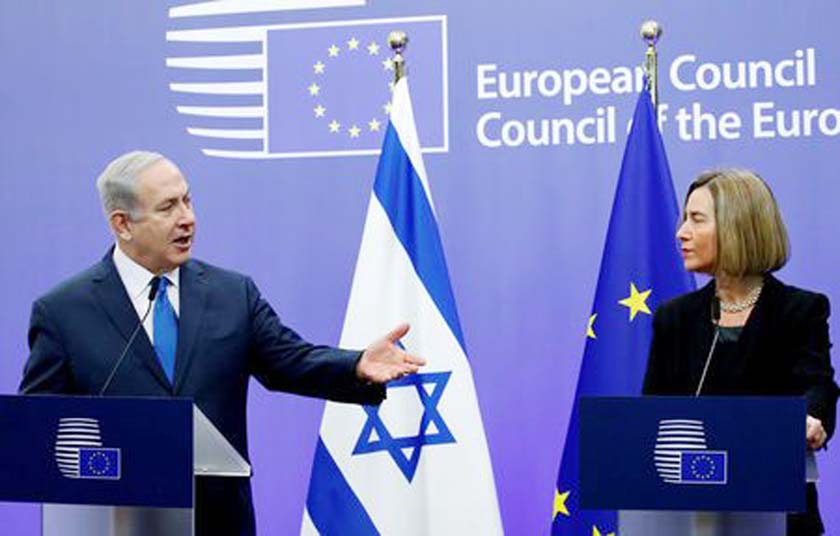
Reuters, Brussels :
Prime Minister Benjamin Netanyahu took his case to Europe to ask allies to join the United States in recognizing Jerusalem as Israel’s capital, but met a firm rebuff from EU foreign ministers who saw the move as a blow against the peace process.
Palestinian President Mahmoud Abbas, meanwhile, took his own case to Egypt on Monday and was expected to fly to Turkey for a meeting of Muslim countries this week, cementing support from leaders who say the U.S. move was a dire error.
President Donald Trump announced last Wednesday the United States would recognize Jerusalem as Israel’s capital, breaking with decades of U.S. policy and international consensus that the city’s status must be left to Israeli-Palestinian talks.
Palestinian militants in Gaza fired a rocket into Israel and the Israeli military said it responded with air strikes and tank fire targeting a position of Hamas, the Islamist group that controls the enclave.
On the ground in the Palestinian territories, violent clashes with Israeli security forces in which scores of Palestinians have been injured and several killed since the U.S. announcement last week appeared to have mostly subsided.
Netanyahu, on his first visit to EU headquarters in Brussels, said Trump’s move helped peace, “because recognizing reality is the substance of peace, the foundation of peace”.
Israel, which annexed East Jerusalem after capturing it in a 1967 war, considers the entire city to be its capital. Palestinians want East Jerusalem as the capital of a future independent state.
The Trump administration says it remains committed to the peace process and its decision does not affect Jerusalem’s future borders or status. It says any credible future peace deal will place the Israeli capital in Jerusalem, and ditching old policies is needed to revive a peace process frozen since 2014.
But even Israel’s closest European allies have rejected that logic and say recognizing Israel’s capital unilaterally risks inflaming violence and further wrecking the chance for peace.
After a breakfast meeting between Netanyahu and EU foreign ministers, Sweden’s top diplomat said no European at the closed-door meeting had voiced support for Trump’s decision, and no country was likely to follow the United States in announcing plans to move its embassy.
“I have a hard time seeing that any other country would do that and I don’t think any other EU country will do it,” Margot Wallstrom told reporters.
Israel’s position does appear to have more support from some EU states than others. Last week, the Czech foreign ministry said it would begin considering moving the Czech Embassy from Tel Aviv to Jerusalem, while Hungary blocked a planned EU statement condemning the U.S. move.
But Prague later said it accepted Israel’s sovereignty only over West Jerusalem, and Budapest said its long-term position seeking a two-state solution in the Middle East had not changed.
On Monday, Czech Foreign Minister Lubomir Zaoralek said of Trump’s decision: “I’m afraid it can’t help us.”
“I’m convinced that it is impossible to ease tension with a unilateral solution,” Zaoralek said. “We are talking about an Israeli state but at the same time we have to speak about a Palestinian state.”
The Palestinian president, Abbas, met Egypt’s President Abdel Fatah al-Sisi in Cairo, as well as the head of the Arab League. Egypt, a U.S. ally with a peace treaty with Israel, has brokered Israeli-Palestinian deals in the past.

